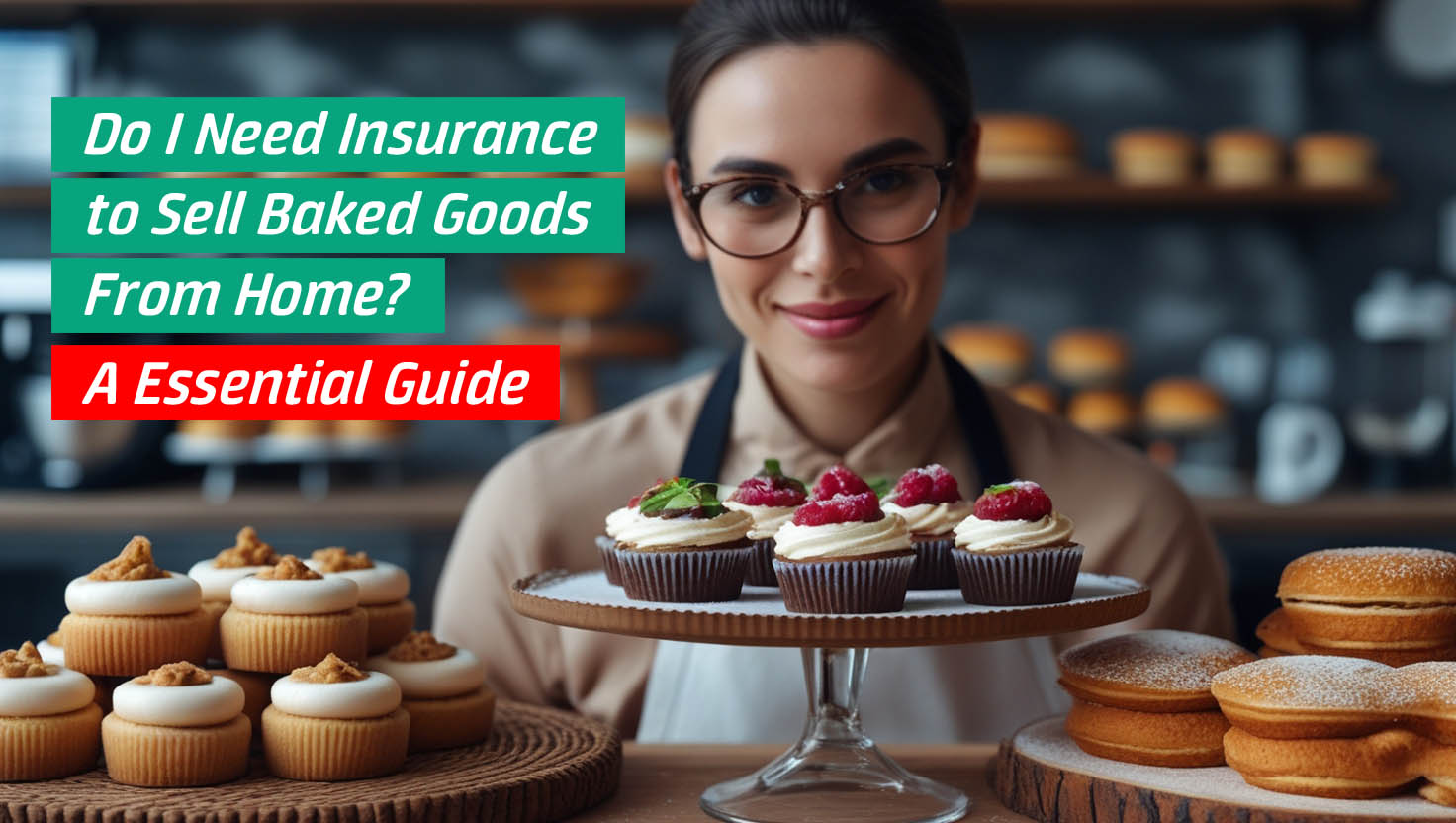The rise of cottage food businesses has empowered thousands of passionate bakers to turn their hobbies into home-based ventures. But as your customer base grows, so does your exposure to legal and financial risks. That leads to a critical question: Do I need insurance to sell baked goods from home?
In this article, we’ll explore why home bakery insurance is important, the types of coverage available, legal requirements by state, and how to choose the best insurance policy for your needs. Whether you’re just starting your home baking business or already taking orders, this guide offers essential insights to help you protect your passion and your livelihood.
Why Insurance Matters When Selling Baked Goods From Home
Selling baked goods from home may seem harmless. However, anytime you’re exchanging food for money, you’re assuming a level of risk. Insurance helps protect you in situations such as:
- A customer becoming ill after eating your product
- Accidental contamination during baking or packaging
- A slip-and-fall accident if someone visits your kitchen
- Damage to equipment, supplies, or your home caused by business operations
Without insurance, a single claim could cost you thousands—or even force you to shut down your business.

Understanding Cottage Food Laws
Before diving into insurance options, it’s important to understand cottage food laws. These are state-specific regulations that govern what types of food can be legally made and sold from a home kitchen.
Most states allow the sale of non-potentially hazardous foods like:
- Cookies
- Bread
- Muffins
- Cakes (without cream filling)
- Brownies
- Fruit pies
To find out what’s legal in your area, check the Institute for Justice’s Cottage Food Law Map. Note that these laws also specify whether you’re required to carry insurance.
Is Insurance Legally Required to Sell Baked Goods From Home?
In many states, insurance is not legally required to operate a home-based bakery under cottage food laws. However, some local health departments or farmer’s markets may require proof of liability coverage.
Even if not required by law, it is strongly recommended. Here’s why:
- Homeowners insurance often does not cover business activities
- Customer injury or illness claims can be financially devastating
- Having coverage boosts your professional credibility
Check with your local department of health or small business bureau to confirm insurance requirements in your location.
Types of Insurance for Home Bakers
If you’ve decided that insurance is a wise step (and it is!), here are the most relevant types for home-based bakers:
1. General Liability Insurance
Covers:
- Third-party injuries (e.g., a customer trips on your porch)
- Property damage
- Legal fees
This is the most basic and essential form of coverage for small food businesses.
2. Product Liability Insurance
Covers:
- Claims related to illness or injury caused by your baked goods
This is crucial because food safety issues—whether real or perceived—can have serious legal consequences.
3. Commercial Property Insurance
Covers:
- Damage to baking equipment, ingredients, and supplies
Note: If you rent or lease equipment, you may also need separate coverage.
4. Home-Based Business Endorsement
Some insurers offer a rider or endorsement to your homeowner’s policy that covers certain business activities. However, it often comes with limited protection and should not replace full business insurance.
5. Business Owner’s Policy (BOP)
A BOP bundles general liability and commercial property insurance into a single, cost-effective policy.
6. Workers’ Compensation Insurance
If you hire employees, even part-time, you may be legally required to carry workers’ comp insurance. This covers medical expenses and lost wages for on-the-job injuries.
How Much Does Home Bakery Insurance Cost?
The cost of insurance depends on several factors:
- Business location
- Revenue
- Number of employees
- Type of products sold
- Previous claims history
On average, a general liability policy for a home bakery can range from $250 to $600 annually. Adding product liability or property coverage may raise the premium.
To get accurate pricing, request quotes from multiple providers like:
Tips for Choosing the Right Insurance Policy
- Work with an agent who understands food businesses
- Compare quotes from multiple carriers
- Read the fine print on coverage limits and exclusions
- Consider bundling with other business services to save
- Ask about seasonal or event coverage if you only sell occasionally
Real-World Scenarios Where Insurance Helps
- Allergy Incident: A customer claims you didn’t disclose allergens and suffers a reaction. Product liability insurance steps in to handle medical costs and legal defense.
- Home Damage: A fire from a faulty mixer damages your kitchen. Commercial property insurance covers the replacement of equipment and repairs.
- Market Mishap: A child trips over your vendor table at a farmer’s market and breaks an arm. General liability covers their medical bills.
Without coverage, each of these scenarios could result in thousands of dollars in damages.
How to Stay Compliant and Protected
Aside from getting insured, here are other steps to protect your home bakery:
- Register with your state’s cottage food program
- Follow safe food handling practices
- Label products clearly, especially allergens
- Keep business and personal finances separate
- Maintain accurate sales and expense records
For more tips, read our guide on How to Start a Legal Home Baking Business.
Frequently Asked Questions
Can I just use my homeowner’s insurance?
No. Homeowner’s insurance typically excludes business-related claims. You need separate or additional coverage for business activities.
What if I only bake occasionally?
You can find temporary or event-based insurance policies. Thimble and FLIP offer flexible options that cater to part-time or seasonal bakers.
What happens if I get sued?
If you’re uninsured, legal fees, settlements, and court judgments come out of your personal finances. Insurance provides a layer of protection and peace of mind.
Final Thoughts
So, do you need insurance to sell baked goods from home? Legally, not always. But practically? Absolutely. It’s one of the smartest investments you can make in your business.
Insurance isn’t just about risk—it’s about professionalism, trust, and sustainability. It protects everything you’ve worked hard to build, from your recipes to your reputation.
Whether you’re baking sourdough, cupcakes, or custom cookies, protect your kitchen hustle with the right insurance policy.
